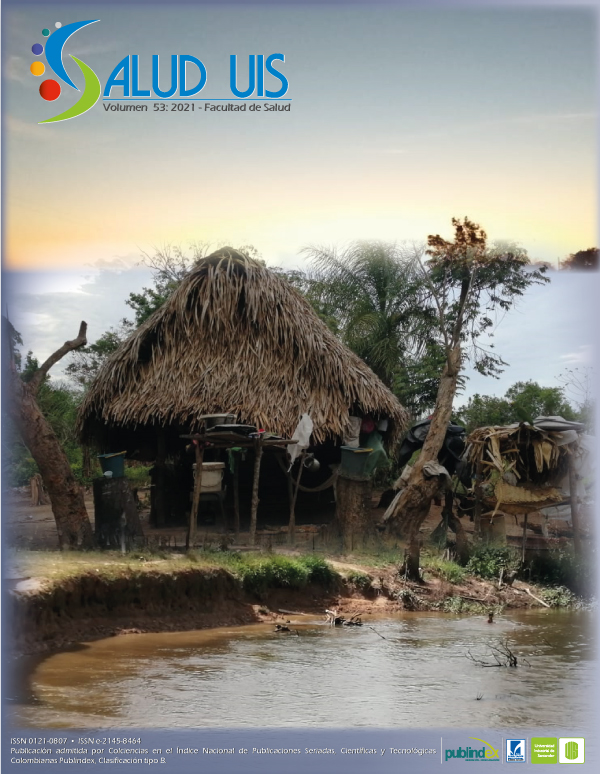Abstract
Introduction: At the beginning of the pandemic, governments implemented non-pharmacological measures to mitigate and suppress the spread of the virus in the absence of vaccines and effective pharmacological treatments. The Colombian government undertook actions to control the spread of COVID-19. These affected the population; therefore, the country requires a thorough evaluation of the social response to the pandemic. Objective: To analyze the social response to non-pharmacological measures to control the spread of COVID-19 in Colombia. Methodology: Cross-sectional descriptive exploratory study. The total number of people who responded to the survey was 3549 adults, between April 8 and 20, 2020. Results: There are three groups of people in the country who are responding to the pandemic in different ways: those who resist (34%), those who suffer (26%) and those who accept it (40%). Overall, 90% of people took at least one measure to protect themselves and others, 68% took more than three hygiene and self-care measures, 60% implemented more than three physical distancing measures. Conclusions: At the beginning of the pandemic, in the absence of a vaccine, individual actions are as important as measures implemented by the government. However, community-level education and access to correct, clear and concise information contributed to positive behavioral changes in hygiene, self-care and adherence to distancing measures, all of which are crucial to stop the spread of COVID-19.
References
Ferguson NM, Laydon D, Nedjati-Gilani G, Imai N, Ainslie K, Baguelin M, et al. Impact of nonpharmaceutical interventions (NPIs) to reduce COVID-19 mortality and healthcare demand. 2020; 20. doi: https://doi.org/10.25561/77482
Organización Panamericana de la Salud. Orientaciones para la aplicación de medidas de salud pública no farmacológicas en grupos de población en situación de vulnerabilidad en el contexto de la COVID-19. 2020; 60. https://iris.paho.org/handle/10665.2/52955
Atchison C, Bowman L, Eaton JW, Imai N, Redd R, Pristera P, et al. Imperial-College-COVID19-Population-Survey-20-03-2020. 2020; 17-18. doi: https://doi.org/10.25561/77581
Salud mental y cómo sobrellevar la situación durante el COVID-19 | CDC. https://espanol.cdc.gov/coronavirus/2019-ncov/daily-life-coping/managing-stress-anxiety.html
Instituto Nacional de Salud de Colombia I. Coronavirus en Colombia]. https://www.ins.gov.co/Noticias/Paginas/Coronavirus.aspx
Kwok KO, Li KK, Chan HH, Yi YY, Tang A, Wei WI, et al. Community responses during the early phase of the COVID-19 epidemic in Hong Kong: risk perception, information exposure and preventive measures. Emerg Infect Dis. 2020; 26(7): 1575-1579. doi: 10.3201/eid2607.2005007
Pristerà P, Papageorgiou V, Kaur M, Atchison C, Redd R, Bowman L. Report 14: Online iommunity Involvement in COVID-19 Research & Outbreak Response: Early Insights from a UK Perspective. Imp College London COVID-19 Resp Team. 2020; 1-31. doi: https://doi.org/10.25561/77842
Geldsetzer P. Use of Rapid Online surveys to assess people’s perceptions during infectious disease outbreaks: A Cross-sectional survey on COVID-19. J Med Internet Res. 2020; 22(4): e18790-e18790. doi: 10.2196/187909
Ministerio de salud y proteccion social. Resolución número 385 - 12 MAR 2020. 2020; 1-5.
Ministerio de salud y proteccion social. Resolución número 000470 DE 2020. 2020; 1-3.
IBM SPSS Software - Colombia | IBM. https://www.ibm.com/co-es/analytics/spss-statistics-software
Cea D´Ancona M, Blanco F, Álvarez M, Arribas Á, Díaz E, Valles M. Análisis de conglomerados (I): El procedimiento Conglomerados de K medias. SPSS 10 Guía para el análisis datos. 2012; (I): 13. http://pendientedemigracion.ucm.es/info/socivmyt/paginas/D_departamento/materiales/datos_multivariante.htm
Duffy B, Allington D. The accepting, the suffering and the resisting: the different reactions to life under lockdown. King’s College London. 2020.
Escolà-gascón Á, Marín F, Rusiñol J, Gallifa J. Pseudoscientific beliefs and psychopathological risks increase after COVID-19 social quarantine. 2020; 1: 1-11. doi: https://doi.org/10.1186/s12992-020-00603-1
Salari N, Hosseinian-Far A, Jalali R, Vaisi-Raygani A, Rasoulpoor S, Mohammadi M, et al. Prevalence of stress, anxiety, depression among the general population during the COVID-19 pandemic: A systematic review and meta-analysis. Global Health. 2020; 16(1): 1-11. doi: https://doi.org/10.1186/s12992-020-00589-w
Fondo de Población de las Naciones Unidas (UNFPA). COVID-19: Un enfoque de género proteger la salud y los derechos sexuales y reproductivos y promover la igualdad de género. 2020; https://www.unfpa.org/sites/default/files/resource-pdf/COVID-19_A_Gender_Lens_Guidance_Note.docx_en-US_es-MX.pdf
Mujeres O. Dimensiones de Género en la crisis del COVID-19 en Colombia: Impactos e implicaciones son diferentes para mujeres y hombres. 2019.
Organización Panamericana de la Salud, World Health Organization, The Partnership, Profamilia A. Entendiendo las experiencias y prácticas resilientes de adolescentes y jóvenes durante la pandemia del COVID- 19 en Colombia 1. 2020.
SurveyMonkey. SurveyMonkey: la herramienta más popular del mundo para crear encuestas en línea de forma gratuita. https://es.surveymonkey.com/

This work is licensed under a Creative Commons Attribution 4.0 International License.
Copyright (c) 2021 Juan Carlos Rivillas, Danny Francis Rivera-Montero, Sandra Marcela Sánchez, Rocío Murad Rivera, Mariana Calderón-Jaramillo
